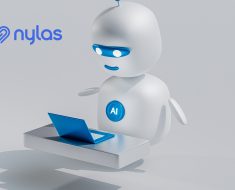The European Commission is to propose an innovation strategy on Artificial Intelligence to establish ‘AI Factories’ and boost the uptake of generative AI in strategic sectors, according to an early draft seen by Euractiv.
The EU executive will present the communication “on boosting AI start-ups and innovation” by the end of January. The strategy can be seen as a first step toward an industrial policy specific to Artificial Intelligence, while on the regulatory side, the EU is approaching the formal adoption of the AI Act.
The document notes how the initiative was made necessary by AI’s rapid and disruptive acceleration, noting the critical role of foundation models like GPT-4, which gave rise to general-purpose AI systems such as OpenAI’s ChatGPT and Google’s Bard.
“Mastery of the latest developments in generative AI will become a key lever of Europe’s competitiveness and technological sovereignty,” reads the strategy, which outlines a strategic investment framework capitalising on the EU’s assets.
AI Factories
At the centre of the Commission’s strategy are so-called ‘AI Factories’, defined as “open ecosystems formed around European public supercomputers and bringing together key material and human resources needed for the development of generative AI models and applications.”
The AI-dedicated supercomputers and close-by or well-connected ‘associated’ data centres will form the physical infrastructure. These ‘AI factories’ are also meant to conduct unspecified “large-scale talent attraction activities”.
Supercomputers and datacentres
Inside the Commission, the European High-Performance Computing Joint Undertaking, EuroHPC JU in jargon, is widely regarded as a success story for this type of public-private partnership. Once completed, it will establish a network of eight interconnected supercomputers.
Thus, the idea is to amend the EuroHPC JU legal basis to introduce the ‘AI Factories’ concept detailing how the initiative should provide supercomputing service infrastructure specifically to train large-scale models, cutting the training time from months to weeks.
Start-ups and researchers could access this computing power as a service throughout the EU, but first, they must prove that their work is ‘ethical and responsible’. Joining the AI Pact, a voluntary initiative for early compliance with the AI Act, is vented to demonstrate this commitment.
“Computing infrastructure is a prohibitively expensive component of AI, creating high barriers for start-ups to enter the market. That’s why the Commission’s proposal is so important: by providing computing as a public good, it allows more SMEs to build their own models rather than rely on Big Tech products,” Sebastiano Toffaletti, secretary general at European DIGITAL SME Alliance, told Euractiv.
Additionally, part of the infrastructure will be ‘established’ data centres linked to the Common European Data Spaces. No detail is provided on selecting data centres, but developing a European cloud infrastructure has become increasingly political.
Innovation community
Another strand of the AI Factories is dedicated supercomputing support services centres to support AI start-ups and researchers. The EuroHPC JU will provide a single point of contact to redirect start-ups to the relevant support centre.
The support services include ‘supercomputer-friendly’ programming facilities, algorithmic support for developing and evaluating AI training models, and support for developing new applications in critical areas like robotics, manufacturing, and new materials.
All AI Factories will have to collaborate with each other closely, the EuroHPC Competence Centres and other relevant AI initiatives of the Union. However, the AI Act’s regulatory sandboxes are not explicitly mentioned.
Industrial uptake
While the AI Factories are focused on the infrastructural and input level, the Commission also wants to launch GenAI4EU to promote the vertical uptake of AI across the bloc because the “lack of an ecosystem approach pooling the necessary AI and sectoral skills risks hampering the Union’s ability to master the latest developments in AI.”
The idea is to connect AI start-ups with established companies in traditional industries like manufacturing. The AI Office established under the AI Act will monitor the progress of these strategic applications against pre-set targets.
The potential for generative AI systems is seen mainly in robotics, healthcare, biotechnologies – for which an initiative will be presented this year, chemicals, new materials, batteries, manufacturing, engineering, mobility, climate change, virtual worlds, digital twins, cybersecurity, aerospace, agrifood, science, science, public sector.
Funding for GenAI4EU will come from the Horizon Europe and the Digital Europe programmes for a total of €500 million. EU countries are expected to invest around €100 million in the European Digital Infrastructure Consortia dedicated to large language models and local digital twins.
Chips
The training of AI models requires highly sophisticated microchips known as Graphics Processing Unit (GPU). A global shortage of GPUs has left AI start-ups scrambling to get hold of them, as Big Tech companies used their deep pockets to stock them up.
In this context, the Commission wants to follow up on its 2019 European Processor Initiative with a ‘major initiative’ under EuroHPC JU to be launched this year to develop a new generation of chips, including for quantum computing.
Investments
Regarding investments, the strategy mentions that the European Innovation Council will provide ‘dedicated investment possibilities’ to AI start-ups through its accelerator scheme through grants and equity.
InvestEU, the EU’s programme for funding companies long-term, will leverage an estimated €1 billion of investments in scale-ups and SMEs via a dedicated instrument for venture capital funds.
Through the EuroHPC JU, the EU executive and member states will invest €2.1 billion to acquire new or upgrade existing supercomputers with AI capabilities, create support services and develop AI-oriented microprocessors.
[Edited by Nathalie Weatherald]





